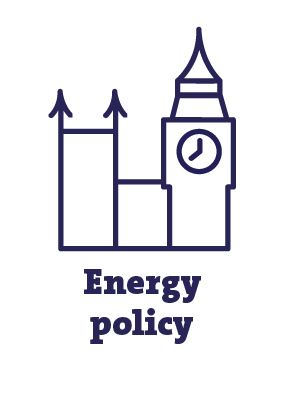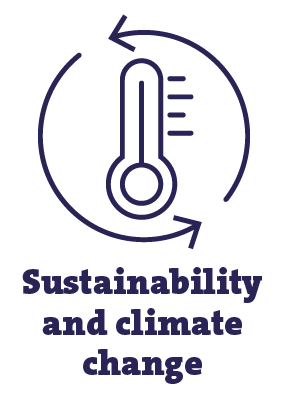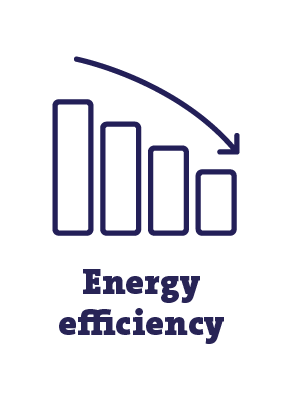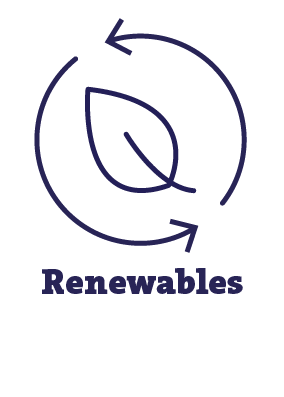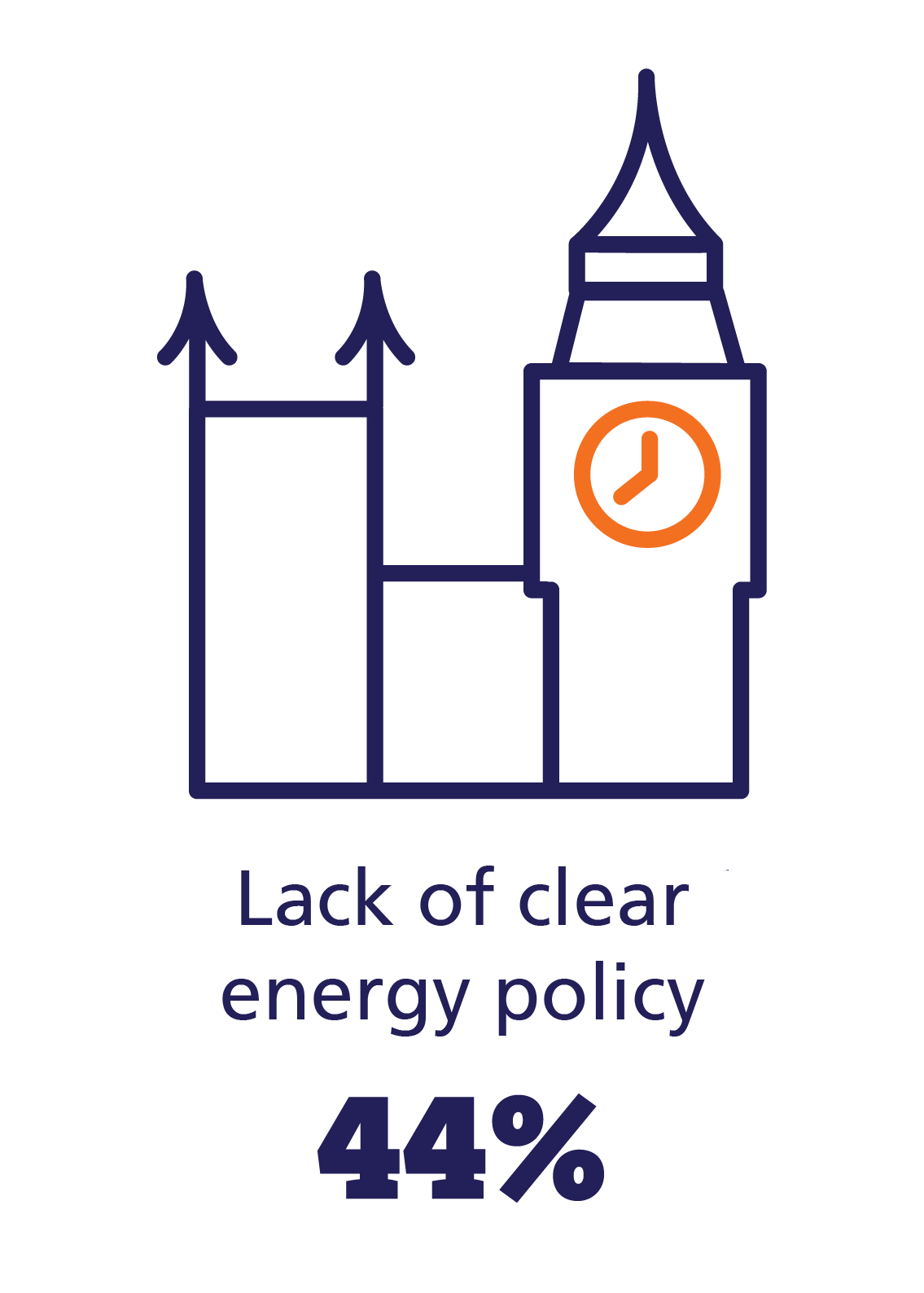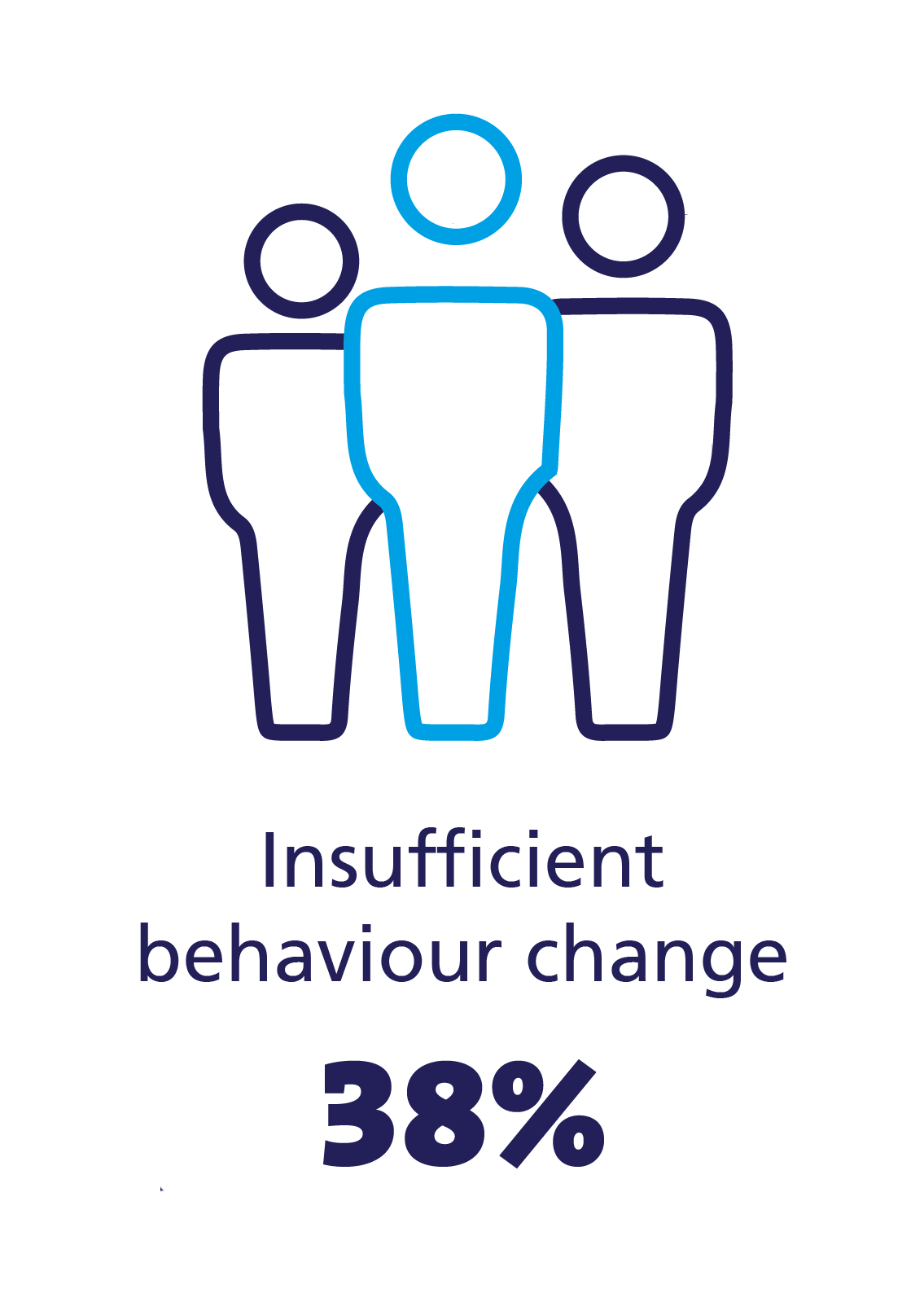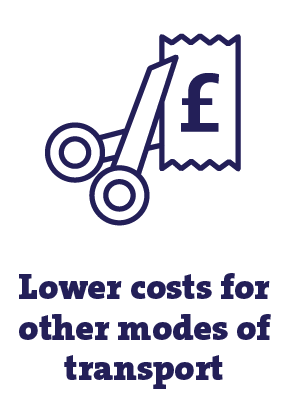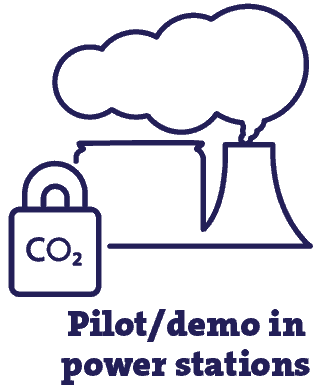Bold policy changes are needed to boost a green recovery from COVID-19, and transition to a low-carbon, sustainable energy system.
Energy Institute (EI) members were asked to identify the biggest challenges facing the energy industry in 2020. Respondents provided free-text responses, which were categorised and totalled during analysis. Results from six consecutive years of Energy Barometer surveys allow for the monitoring and analysis of changing challenges over time.
This year, three challenges stood out above the rest – ‘low-carbon energy’, ‘energy policy’, and ‘sustainability and climate change’. The survey opened at the beginning of March, and during the four weeks the survey was open, the impact of COVID-19 was mentioned with increasing frequency as the severity of the pandemic became more apparent; the challenge of COVID-19 is discussed in greater detail below. The remainder of the top ten features a range of challenges, from decarbonising heat and transport to strengthening public engagement.
In 2020, energy professionals highlight the challenge of making sure the UK energy system and economy are strong and resilient, while at the same time ensuring they become sustainable and low-carbon. This drive for change, as with the rest of the economy, has been affected by the COVID-19 pandemic.
Biggest challenges facing the energy industry

Low-carbon energy
(Most frequently mentioned with: Investment and cost)
While the UK has made great strides in decarbonising power generation, there remains an enormous amount of work to do in transitioning to low-carbon energy across the whole economy. Energy professionals call for more low-carbon power as a prerequisite for decarbonising sectors such as transport and heat and cite investment as a key piece of the puzzle. Several drivers of decarbonisation are changing the picture – for example, falling technology costs and more ambitious national greenhouse gas (GHG) emission reduction targets. The energy industry must do more to provide low-carbon energy solutions such as wind, solar, carbon capture usage and storage (CCUS), and hydrogen.
[The challenge of] generating low carbon electricity and managing the electricity network to allow decarbonisation of heat and transport.
-Survey respondent

Energy policy
(Most frequently mentioned with: Sustainability and climate change)
Respondents to the Energy Barometer have consistently ranked energy policy as one of the biggest challenges for the energy industry, and this year is no different. While we now have a Government with a clear majority, and Brexit has now occurred, uncertainties remain about trade and other Brexit-related issues, and the impact and recovery from COVID-19 is occupying a great deal of Government bandwidth that would normally be free to plan and develop crucial energy policy. While the past year has seen some eye-catching announcements, for instance the adoption of a net-zero emission reduction target, respondents are concerned that the policy framework has yet to set out a clear pathway to get there. Regulation and market support mechanisms need to be extended urgently within an overarching policy framework, with a view to simultaneously decarbonise and safeguard the economy.
There is sound advice here for ministers looking to stimulate Britain's economy in a way that averts future risk. Most immediately, the economic, environmental and social co-benefits of upgrading our existing housing stock have never been clearer. But nor can we afford to delay bold decisions on low-carbon heat and transport which are essential for the trajectory to net zero.
-Dr Robert Gross FEI, Chair, EI Energy Advisory Panel and Director, UKERC

Sustainability and climate change
(Most frequently mentioned with: COVID-19)
Energy professionals were keen to highlight the importance of sustainability and climate change in their comments this year. The UK’s adoption of a 2050 target for net-zero GHG emissions has undoubtably focused minds in the energy industry. Businesses are adapting so as to remain profitable while still cutting emissions; creating a balance between the needs of the UK economy and the pace of change required for net zero is essential. Members also stress that sustainability and climate change are issues of global scale that require international cooperation and highlight the difficulty in meeting the increasing global demand for energy while reducing GHG emissions.
To lay the groundwork towards a net zero economy, amid the disruption of global energy markets caused by the coronavirus outbreak.
-Survey respondent

Impacts of COVID-19
(Most frequently mentioned with: Markets, economics and competition & Sustainability and climate change)
Over the weeks that the Energy Barometer survey was open, the disease COVID-19 spread around the world, creating a global health crisis with millions of people infected and tens of thousands losing their lives. The UK went into lockdown, with the subsequent drop in business, trade and free movement depressing the economy.
In the short term, recovery from the enormous economic downturn of the coronavirus epidemic – but [we must] take opportunities it may offer… to accelerate the energy transition.
-Survey respondent
Energy professionals cite the enormous challenge for the energy industry of responding to the ongoing economic uncertainty caused by COVID-19 – for example, oil and gas companies struggling with low, volatile prices due to a drop in demand. Demand has reduced for road transport, industry and aviation in particular. Furthermore, energy professionals do not believe that demand will bounce back immediately once restrictions have been lifted, particularly for travel and transport. Almost 90% of respondents expect reduced passenger flights ‘for an extended period’.
Legacy of COVID-19 impacts of UK energy industry
To what extent do you expect the following impacts of COVID-19 on the UK energy industry to remain, after government restrictions related to the pandemic have been lifted?
COVID-19 follow-up survey, N=184
The challenge of COVID-19 should not be understated; however, the pandemic does present some opportunities to accelerate change and ‘build back better and greener’. See Section 4 for more.
Each year, EI members consistently predict that the price of Brent crude will rise by about $10 by year’s end. For the first time in 2020, respondents expect oil prices to fall by that amount, citing geopolitical factors and instability, actions and policies of oil producing nations, and demand levels in developed countries. There was also specific mention of the COVID-19 pandemic in a significant number of write-in responses. At the time of publication, the pandemic had led to unprecedented demand reduction, with an associated price reduction of about $10, to $43 per barrel.
There is a clear consensus from the UK energy industry in this research. We are proud of our success at decarbonising power, but need to do more on energy efficiency and innovative technologies. We need to recover and rebuild after COVID-19 – and these views show that a Green Recovery is not just possible, it's the preference of the energy industry.
-Emma Pinchbeck, Chief Executive, EnergyUK
Other challenges facing the energy industry
Markets, economics and competition
(Most frequently mentioned with: COVID-19)
The impacts of COVID-19 are testing businesses in the energy industry; however, while few will have predicted the huge disruption caused by the pandemic, respondents are also concerned about longer-term economic viability of the industry. There is a particular focus on the oil and gas sector – EI members stress that every part of the industry needs to prioritise the energy transition above short-term profitability for long-term economic health and societal wellbeing. Energy sources such as offshore wind and solar PV have already proven that there is scope for market investment in low-carbon energy.
Public engagement and acceptance
(Most frequently mentioned with: Low-carbon energy & Sustainability and climate change)
Achieving a net-zero GHG target will be impossible without having energy consumers on-board, given the huge changes required to heat, transport and industry. This requires improved communication on the part of energy professionals regarding the necessity and benefits of as well as the challenges to decarbonisation. There is cause for optimism – the past year has seen wider society in the UK more engaged and interested in climate change and energy usage than ever before.
Investment and cost
(Most frequently mentioned with: Low-carbon energy)
The energy industry must manage the balance between a desire for short-term dividends and the scale of investment into low-carbon technologies required in order to meet emission reduction targets. Energy sources that were previously expensive and limited in scope are starting to become widespread and profitable, such as offshore wind and solar PV. EI members stress that similar journeys need to take place for hydrogen, CCUS and battery technology – this is essential for rapid decarbonisation and development of a more sustainable economy.
Decarbonising transport
(Most frequently mentioned with: Decarbonising heat)
This is the first year that decarbonising transport has placed in the top ten biggest challenges. Energy professionals suggest a number of key recommendations, including improving the range, efficiency and charging speed of electric vehicles (EVs), as well as continuing to expand national charging infrastructure. A greater supply of low-carbon power and a more flexible grid are the essentials of coping with increased and varied demand from EVs. In addition, there is the need to find viable alternatives to fossil fuels for shipping, aviation and heavy goods vehicles (HGVs).
Decarbonising heat
(Most frequently mentioned with: Decarbonising transport)
Decarbonising heat will be a huge challenge, the pathway to which will likely include a mix of electrification, ‘green gas’ and heat networks. Upgrading domestic heating systems require substantial investment and modification of buildings and infrastructure; therefore, respondents call for long-term policy stability as a prerequisite for the delivery of the solution. Additionally, they recommend making the most of waste heat, by adopting a more extensive system of heat networks (district heating).
People and skills
(Most frequently mentioned with: Energy policy)
Energy professionals fear that their industry is facing a shortage of skilled workers, such as engineers, technicians and data scientists. As the industry’s need for the best talent becomes more apparent with the urgent challenges of our time, solving this issue will require joint efforts from government, educators and businesses. Decarbonisation of sectors such as heating require the development of a whole new supply chain, with concomitant specialist skills and expertise. According to respondents, the industry must ensure it is an attractive destination for new talent, and this will involve addressing their concerns about the sustainability and longevity of their future careers and the ability to reskill and develop people within a sector experiencing rapid transformation.
Biggest challenges facing the energy industry (2015-2020)
Answers were volunteered in open text, then coded and totalled during analysis. N=475 (2015), 393 (2016), 335 (2017), 349 (2018), 351 (2019), 355 (2020).
While energy policy has regularly been a top challenge cited by energy professionals, the challenges of low carbon energy as well as sustainability and climate change have grown in respondents’ views over the past six years.

